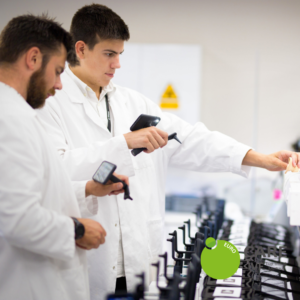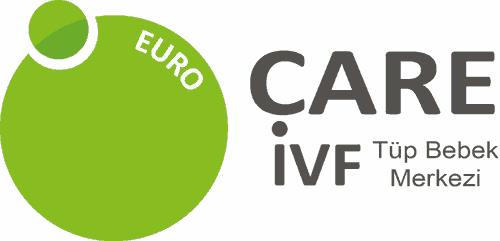 An increasing number of women today decide to have a baby later in life. According to the Centers for Disease Control and Prevention, the birth rates in 2016 for women ages 30 to 44 were significantly increased compared to the rates for women under 30.
An increasing number of women today decide to have a baby later in life. According to the Centers for Disease Control and Prevention, the birth rates in 2016 for women ages 30 to 44 were significantly increased compared to the rates for women under 30.
As a woman gets older, her ovarian reserve diminishes and the egg quality declines. As a result, chromosomal abnormalities are more likely to happen, and with it, the risk of miscarriage and birth defects.
Egg Freezing Cyprus is an effective way of preserving fertility, expanding your reproductive options and stopping the biological clock. This advanced technique allows women to conceive on their preferred schedule instead of a forced one based on their bodies and social conventions.
What is Egg Freezing in Cyprus?
Egg freezing in Cyprus is a process in which a woman’s eggs are extracted, frozen and stored for future use. You may choose to freeze your eggs for medical and non-medical reasons. Social egg freezing has become increasingly popular in recent years. More women choose to delay conception and pregnancy until a later time due to social and personal reasons.
Who Should Freeze Their Eggs?
Egg freezing in Cyprus can be considered in the following cases:
- Women with cancer before undergoing chemotherapy and/or radiation therapy
- Surgery that requires removing the ovaries or may cause irreversible damage.
- Risk of premature ovarian failure, or family history of early menopause.
- Ovarian disease that may cause infertility.
- Genetic conditions that affect the ovaries .
- Fertility preservation for social or personal reasons.
How Does Egg Freezing in Cyprus Work?
Egg Freezing Procedure
The egg freezing procedure involves stimulating the ovaries to produce multiple eggs, retrieving the mature eggs and cooling them to subzero temperatures in our euroCARE IVF lab. When you are ready to have a baby, the frozen eggs are thawed, fertilized and transferred to the uterus with the intent to establish a pregnancy.
Fertility Testing
First, our euroCARE IVF specialists will order fertility tests to assess your ovarian reserve and estimate the potential number of eggs prior to ovarian stimulation. This assessment includes blood tests and ultrasound scan, which will help to determine the necessary dose of fertility drugs.
Egg Freezing Injections
Ovarian stimulation is carried out in the same manner as for IVF in Cyprus, using hormone injections. This step will prepare your ovaries for multiple egg production. The stimulation injections are administered subcutaneously (beneath the skin) in the dosage prescribed by our euroCARE IVF doctor.
Monitoring
During the stimulation phase, you will have routine blood tests and ultrasounds. Our euroCARE IVF specialists will follow the response of your ovaries to the fertility drugs prescribed along with the growth of the eggs. Once the eggs become 18-20mm in size, you will be administered a hCG injection. The injection stimulates the final maturation of the eggs and prepares the ovaries for ovulation.
Egg Retrieval Procedure
The eggs and the surrounding fluid in the ovarian follicles are retrieved using ultrasound-guided aspiration 34 to 36 hours after the hCG injection. The procedure is performed while you are under sedation, and it takes only 15-20 minutes.
Egg Freezing Vitrification
The collected eggs are assessed under the microscope in our euroCARE IVF lab, and those that are mature are frozen. Currently, vitrification is the method of choice for cryopreservation.
Vitrification involves ultra-rapid cooling of the eggs into liquid nitrogen. With this method, it takes only a few minutes for the cells to become “glass-like” or “vitrified”. Around 90 percent of the eggs will survive vitrification.
Thawing
When the woman is ready to start a family, the frozen eggs will be thawed in our lab by placing them in warming solution. The thawing procedure is performed on the same day when fertilization occurs, and it must be synchronized with your cycle. Before thawing, our euroCARE IVF specialists will prescribe medications to prepare your uterus for embryo implantation.
Fertilization
The eggs that survived the freezing process are fertilized in a procedure called Intracytoplasmic Sperm Injection (ICSI). During ICSI in Cyprus, single sperm are injected directly into the thawed eggs. This advanced technique of fertilization is especially effective for frozen eggs as the membrane surrounding the egg becomes slightly harder during the freezing process. The fertilized eggs (now embryos) will grow in culture until they are ready to be transferred into the uterus.
Embryo Transfer
Before transfer, our euroCARE IVF Cyprus doctor will discuss the number of embryos recommended for transfer. Your age at the time the eggs were frozen and the embryo quality will play a major role in deciding on the number of embryos for transfer.
Embryos are transferred on day three or day five after fertilization. Quality assessment, embryo grading and in some cases, embryo screening, are common steps taken before selection and transferring the embryo(s).
Embryo transfer is a short, simple procedure in which embryos are placed into the uterus using ultrasound-guided catheter. The transfer takes only 15 minutes and does not require any anesthesia or sedation.
Embryo Freezing
Extra embryos may be frozen and stored for future use. Embryo freezing involves preserving an embryo at sub-zero temperatures. When you decide you are ready to have IVF treatment in Cyprus, the frozen embryos will be thawed and transferred in a procedure called frozen embryo transfer (FET).
Egg Freezing Process Timeline
Egg freezing is very similar to the conventional IVF treatment in Cyprus except for the fact that there is no embryo transfer involved. Usually, a patient undergoing egg freezing treatment starts taking hormone injections on day two or day three of their menstrual cycle. Depending on the egg development, on day thirteen of the cycle, embryo transfer is carried out at our IVF clinic in Cyprus. Once the eggs are collected, later that day or the next day after the egg retrieval, the collected eggs will be cryopreserved.
A patient who chooses to have an egg freezing treatment in Cyprus has two options available at our euroCARE IVF center: start the ovarian stimulation phase in home country and come for the egg retrieval in Cyprus or have the entire egg freezing treatment carried out at our clinic in Cyprus.
Egg Freezing Cyprus Benefits
- Egg freezing in Cyprus allows you to preserve fertility and “stop” the biological clock. Women peak fertility in their early 20s, at the point when many are just getting started on their careers or their education. One of the major benefits of egg freezing is that it allows you to pursue a career and achieve the dream of motherhood at a convenient time.
- Egg freezing gives you a sense of relief. Many women feel pressure to beat the biological clock. One of the benefits of egg freezing is that you follow your preferred timeline and have a baby when you feel ready. Additionally, egg freezing give you extra time to find the right partner and settle for someone you feel sure about.
- Egg freezing preserves your fertility before invasive medical procedures. Treatments for cancer including chemotherapy and radiotherapy can damage your reproductive organs and cause infertility. Surgery that requires removing the ovary (or ovaries), uterus, or Fallopian tubes can also compromise fertility and make it difficult or impossible to conceive on your own.
Egg Freezing Success Rates
The success rates of egg freezing in Cyprus will depend on a variety of factors including female age, medical history, number of frozen eggs and method of cryopreservation (freezing). The number of embryos transferred will also affect the final results of the egg freezing treatment.
According to a recent study that was published in the medical journal Fertility and Sterility in September 2017
- Women under 35 who freeze 15 eggs have a cumulative 80% chance of at least one live birth.
- Women 35 to 37 who freeze 20 eggs have a cumulative 80% chance of at least one live birth
- Women 38 to 40 who freeze 30 mature eggs have a cumulative 75% chance of at least one live birth.
- Women 40 to 42 who freeze 30 mature eggs have a cumulative 50% chance of at least one live birth.
Another factor that impacts the survival rate of frozen eggs is the method of cryopreservation. Slowly frozen eggs have a 61 percent chance of surviving the thawing process. On the other hand, eggs that were frozen using vitrification have an average 90% to 95% rate of survival.
Embryo transfer and implantation also play an important role in achieving a pregnancy. While still growing in our euroCARE IVF lab, the embryos are closely monitored and graded for quality. On day three or day 5 of development, only the best embryos are transferred to the uterus. Transferring more than one embryo can increase the pregnancy and live birth rate. Extra embryos can be frozen for a future IVF treatment in Cyprus, offering even more chances of pregnancy in the future.
Should I Freeze My Eggs at 35?
Patients very often ask our euroCARE IVF coordinators about the best age to freeze their eggs. The optimal time to freeze a woman’s eggs is in her 20s and early 30s. However, egg freezing in the early to mid-30s is also considered a good time for preserving your fertility. Younger women have a good ovarian reserve (the number of eggs in the ovaries) and tend to produce healthier eggs.
Anyone considering egg freezing should first have their hormones tested to determine the number of remaining eggs in the ovaries. Based on the test results, health and medical history, our doctor will decide if egg freezing is an option for you.
Generally, egg freezing is not recommended after the age of 38. Among women over 40, less than 15 percent of the produced eggs will be genetically normal. If you are thinking about egg freezing, we recommend you to take a proactive approach to preserve your fertility! Get in touch with our euroCARE IVF specialists to discuss your egg freezing options.
Egg Freezing vs Embryo Freezing
First let’s clarify the distinction between egg and embryo freezing. Egg freezing in Cyprus involves freezing unfertilized eggs, while embryo freezing means freezing eggs that were previously fertilized with the male sperm in our euroCARE IVF lab.
Egg freezing in Cyprus offers more options – you don’t have to decide who is going to fertilize the frozen eggs, and even if you do, things may change over time. In that respect, egg freezing offers flexibility and gives you more control over the process.
Egg Freezing at euroCARE IVF Cyprus
We understand you may feel overwhelmed when making decisions about your fertility. You’re not alone with your questions and concerns. euroCARE IVF can help you take concrete steps, so you can get an idea of the egg freezing process.
Egg freezing can bring you peace of mind and can make you feel empowered on your journey to motherhood. You no longer have to compromise your career goals, education or personal life. We’re here to help you build a family when you feel ready to. Contact our patient coordinators for more information about your egg freezing options.
Resources:
Centers for Disease Control and Prevention
